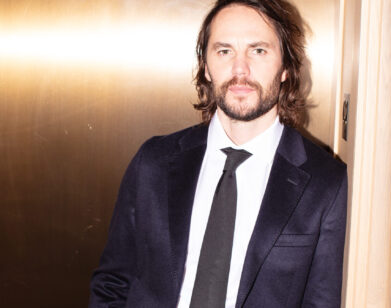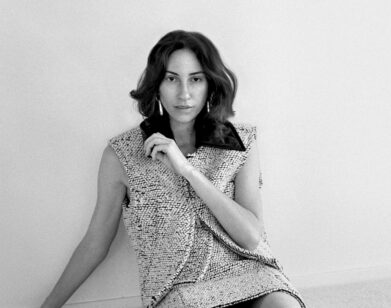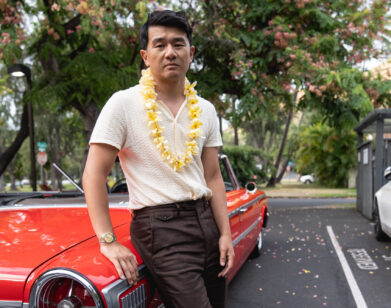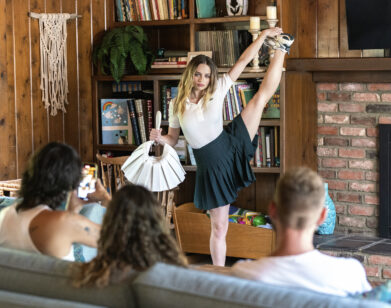in conversation
Nick Robinson and Chloë Grace Moretz Discuss the Weight of Getting Heavy
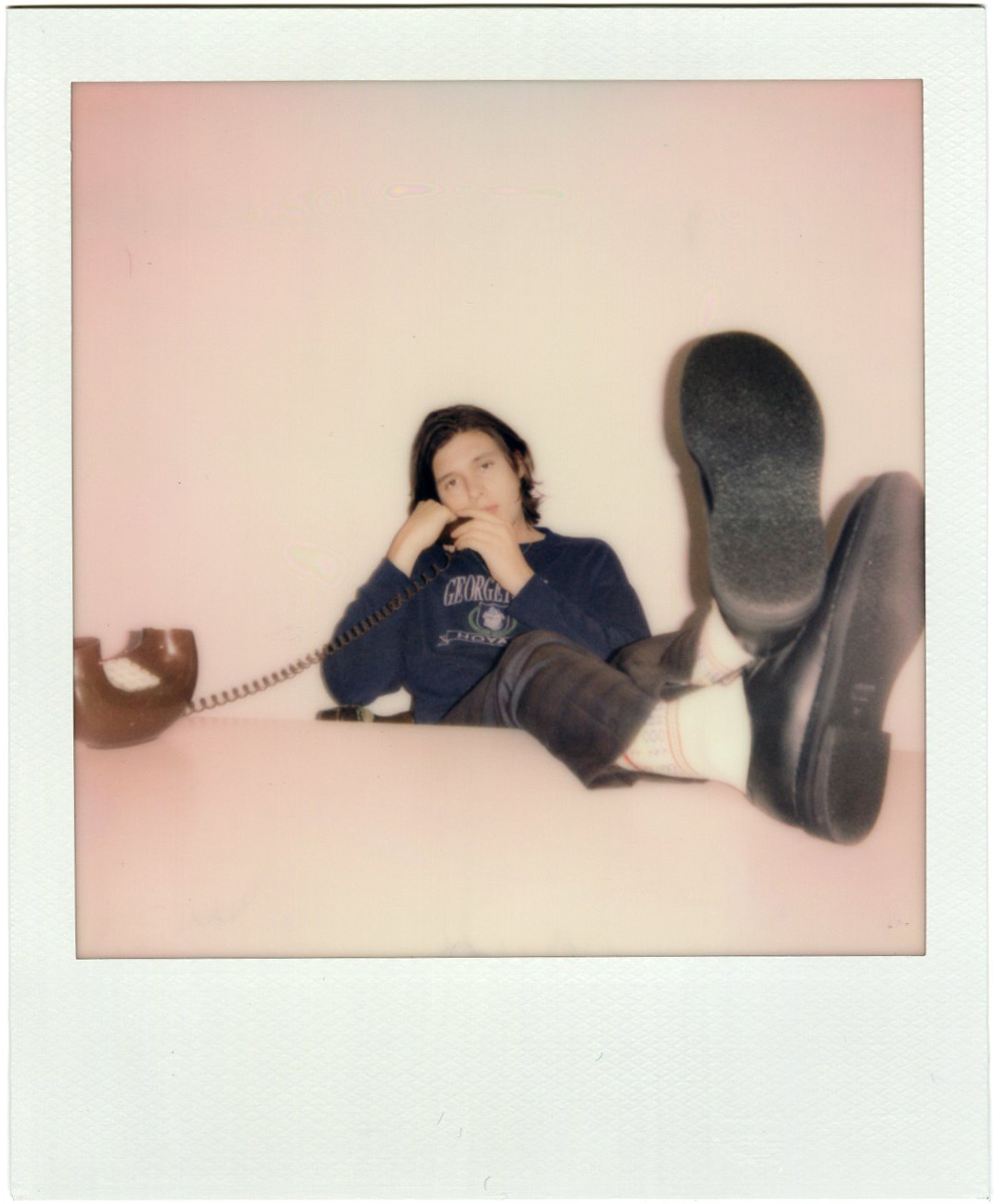
While Squid Game has been blowing minds, Netflix dropped another series that is bound to break hearts. Maid, adapted from Stephanie Land’s bestselling memoir of the same name, is a meticulous and agonizing look at one woman’s (Margaret Qualley) struggle on several fronts, from trying to eke out a living for her and daughter, to extracting herself from an abusive relationship with the father of her child. That character, Sean, could have easily come across as a cookie-cutter villain, but as embodied by Nick Robinson, with an assist from showrunner Molly Smith Metzler’s nuanced and sensitive take on the source material, Sean is instead portrayed as complicated and contradictory, a man whose own troubled background explains his behavior without excusing it. Robinson, who made his acting debut at age 11, made an impression last year as a student caught in an abusive relationship in the FX limited series A Teacher, and with this role has cemented himself as an actor capable of evoking trauma and its murky aftermath. Another former child actor who’s entered a more mature phase of her career is Chloë Grace Moretz, who recently spoke to Robinson about challenging expectations and avoiding comfort zones.
———
NICK ROBINSON: Hi!
CHLOË GRACE MORETZ: Hi! How have you been?
ROBINSON: I’ve been great. I just got back from New York last night. I’m still recovering from Fashion Week and all of that. So, I’m back in L.A. for a bit.
MORETZ: Did you stay in L.A. during quarantine?
ROBINSON: No. We were in New York in March of 2020. We both caught COVID right at the beginning, so we left and went up to Connecticut where Samantha [Urbani, Robinson’s girlfriend] is from. We quarantined there for a month in this little house by the beach. We found it on Craigslist and it turned out to be kind of nice. I mean, we were losing our minds, but we were also by the beach. Then I went up to Canada for eight months to film this thing in the second half of 2020. But, how are you? I know you’ve been working a lot, too. Are you in North Carolina?
MORETZ: Yeah, I’m in Asheville. It’s wonderful, I haven’t been here before. It’s a beautiful town. I love London, but I was so happy to no longer be there.
ROBINSON: How long were you there for?
MORETZ: Since April. When we were texting I remember telling you that I hadn’t really done long form storytelling like this with TV. Leaving your home for that extended period of time is shocking. Not to jump into the questions, but this is a proper segue. You guys shot this in British Columbia, yeah?
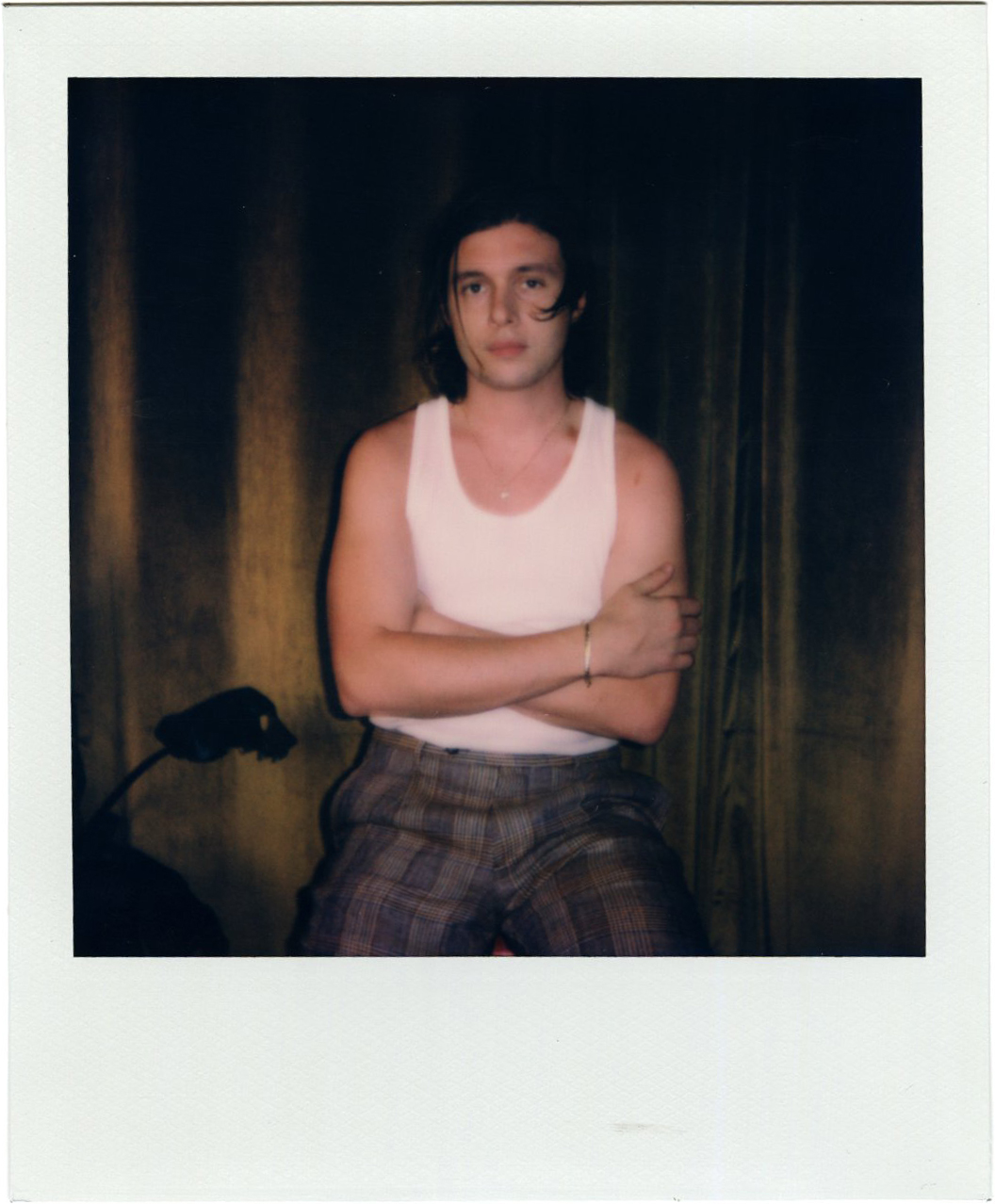
ROBINSON: Yeah, we shot it in Victoria B.C. which is on Vancouver Island. We went up there in August of 2020 and it felt like entering a different world. Shops were open and indoor dining was happening. There was this weird culture shock at first. We were there for eight months. We couldn’t have visitors or see friends and family. So, that was its own challenge. I’m from Seattle and the show is shot in the Pacific Northwest, so it felt like being home.
MORETZ: When you watch the show, it’s pretty obvious that the location contributes so much to the aesthetic of the show. Was it nice to be able to be in that environment? Did it aid you in the storytelling?
ROBINSON: It did for me. We ultimately changed the names of some of the locations, but in the original draft, it mentioned Port Townsend, Camano Island, and Whidbey Island—all these different parts of Washington State that the author had been working in as a maid. So, being in that same environment was helpful. It’s a vibe up there.
MORETZ: How was the cast? I know you know Margaret [Qualley] really well, but how was it working with the cast as a whole?
ROBINSON: It was good. Margaret and I have worked together three times now.
MORETZ: That’s crazy.
ROBINSON: It is. I haven’t worked three times with anyone. At least once a year I’m like, “Alright, time to get a Margaret Qualley project in.” We’ve been friends for years, so there’s none of that usual get-to-know-you type stuff. Because these roles are heavy and intense, it helps that we already knew and trusted each other. We could go all out. Margaret is also such a talented actress and really generous. She’s just in 100 percent, and it’s infectious. We also had Rylea [Nevaeh Whittet] on set, who played our daughter. She was four when we shot it.
MORETZ: What was it like playing a father?
ROBINSON: I have a lot of younger siblings, so I have experience with kids. I got to be the fun uncle who would come in and sing a song or do a piggyback ride—whatever you do with a four-year-old. Also, when you’re dealing with this heavy material, you want to shelter them from that. In the beginning, I have to yell at Margaret when she’s holding Rylea and that set us back weeks. I feel like she was scared of me after that. But, ultimately, it’s a show about Margaret and her relationship with this little girl. At the end of it, they had developed such an intimate little world. And working with Andie MacDowell, who’s a legend, was great. She and Margaret together was a joy to watch. You can see that it runs in the family. I’d look at them and be like, “What is real and what’s not? Are you in character or are you not? I’m confused.”
MORETZ: Do you feel like the character of Sean was a big departure for you?
ROBINSON: For sure, and that was a big draw. I wanted to challenge people’s expectations and play a guy that’s not very likable and who’s not the hero. He’s a very damaged, and, at times, unredeemable character. I think that’s a testament to Molly [Smith Metzler]’s writing. From the jump, there was a full character on the page. She did such a great job of creating a fully realized human being. There was so much on the page that it did a lot of my work for me. It was already built-in.
MORETZ: It’s the best feeling when you can step into a character and let it breathe.
ROBINSON: Exactly. It’s the best when you don’t feel like you have to invent anything.
MORETZ: Did you rely on the book much? Or did you stay away from it and focus on what was in front of you?
ROBINSON: I made the mistake of not reading the source material before. I’ve always regretted it because no matter what, there’s always going to be something there that you can use. I wasn’t familiar with the book before the show, but after I read the first draft of the first script, I got the book. With Stephanie Land, the author, it’s really her story and everything she had to go through to provide for her daughter. She doesn’t go into a lot of detail about her relationship with her ex, so a lot of Sean is fictional and brought out from the mind of Molly. It offered me a certain level of freedom.
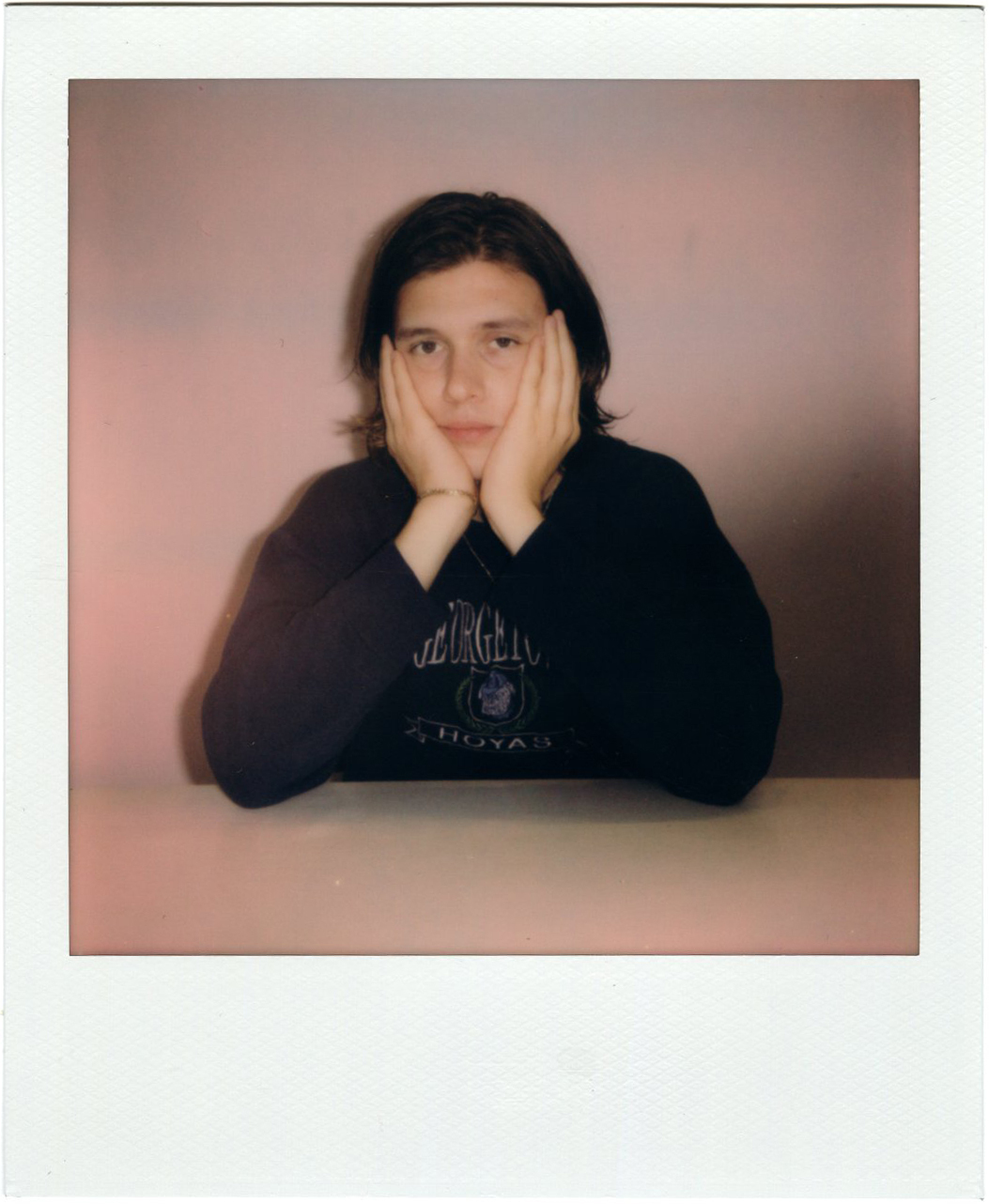
MORETZ: That’s cool.
ROBINSON: It felt like I could do anything. As I mentioned, I grew up in the Pacific Northwest, so it felt like I had grown up with people like Sean, people who were generous and the life of the party, but also deeply damaged and unable to get out from underneath their own trauma.
MORETZ: The show really delves into domestic abuse and poverty in America, and has an interesting perspective on it. Do you feel like there’s anything in particular that you hope people hold on to or learn from this project?
ROBINSON: Totally. The show is dealing with a lot. It’s talking about poverty, abuse, and the way that trauma can be passed down through generations, and the cycle that can create. It’s ultimately a show about Alex and her journey to break that cycle and to create a better life or daughter. I hope that people walk away with a greater appreciation for their own set of circumstances and an appreciation for the real pain and struggle that people working a minimum wage job in this country have to go through just to survive. You never know what somebody’s going through. Most people in Alex’s life did not think that she was in an abusive relationship. The show delves into the different types of abuse and the slippery nature of abuse in general. There are different types. Most people think of it as physical abuse, but there’s also emotional and verbal abuse. That’s when these things are way less defined.
MORETZ: It’s such a large spectrum.
ROBINSON: Yeah. Most people in Sean’s life think of him as this gregarious bartender, but we don’t know what’s going on behind the scenes.
MORETZ: From watching your career, it’s been nice to see you make these shifts into heavier material. How has the transition been? I feel like I’m going through the same thing.
ROBINSON: It’s been a rocky road at times. There’s so much as an actor that you don’t have control of and it can be hard to take ownership of the different projects that you do. Recently, I’ve been really lucky to have worked with a bunch of very talented writers and directors who came in with something that they had to say. You can only do so much in terms of crafting a career. A lot of times, the right part will just come to you. Over the last few years, I’ve made an intentional choice to shift away from the parts that I had gotten comfortable playing. I started to take on parts that scared me. I found that, more often than not, the reaction to those roles was much greater than the ones that felt comfortable or predictable. So, going back to theater and doing To Kill a Mockingbird was a semi-conscious choice to do things that scare me. I want to challenge people’s preconceived notions of me. I want to mix it up a little bit. Sometimes it can be completely overwhelming, but eventually, it will reveal itself to you—whatever the role is. As you mentioned, I feel like you’ve been doing the same thing—taking risks and evolving. It’s very cool to see.
MORETZ: We’re child actors, so it’s an interesting perspective. You do have to make decisions in order to position yourself in a certain way. But, we also grew up in front of the camera. So much of finding ourselves has been through the roles we’ve chosen. It’s a wonderful place to be. I really see it with the roles you’re choosing, and I feel the same way in my own career with really being able to test yourself, push your own boundaries, and grow through the process. You have to keep yourself guessing instead of hanging back in that comfort spot, which is such an easy thing to do. A massive part of it, as you said, is choosing to work with great filmmakers and people behind the scenes that really spearhead those projects. Do you think that you felt supported on this project?
ROBINSON: Absolutely. So much of this job is making an educated guess and placing your bets. It goes back to the script. If the writing is good and you’re excited, then you just have to take the leap. When we first got to Canada, we had to quarantine for two weeks and we would all get on a Zoom every night and talk about how everyone was feeling and what we were going through. We also talked about these characters and this story. That set a tone from the beginning and it did become a little unit up there. Between my kayak and the bike that I bought, those were the two things that were keeping me grounded. I had a lot of downtime. It was great to decompress and have a second to breathe. With that being said, the support system up there was real. We all had Thanksgiving together and we went out for dinner a lot. I feel for Margaret because she was working every single day. She’s in every single frame of that show, so she never had a break. The amount of energy and mental effort it took on her part to play this character for eight months straight was really incredible.
MORETZ: What’s next for you?
ROBINSON: I’m not too sure, honestly. I intentionally took this summer off to spend with friends and family because I’ve been away for so long. I have a few projects that look like they might be going up at the start of the year. But as of now, I’m free as a bird. I’m thinking about moving to New York. I really like the energy out there. And I’ll just keep looking for that next thing.
MORETZ: And breathe.
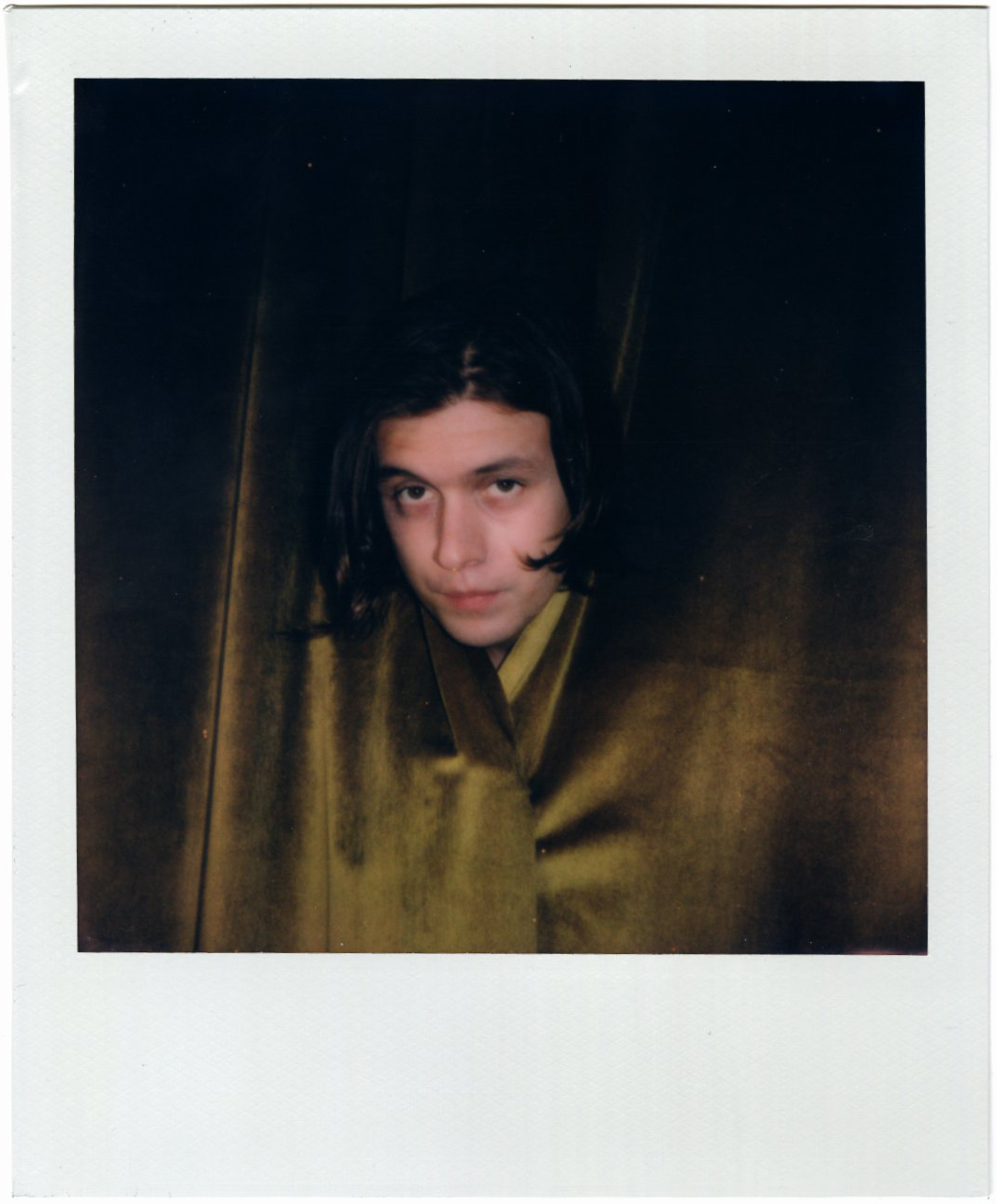
Groomer: Christine Nelli
Special thanks: Polaroid

